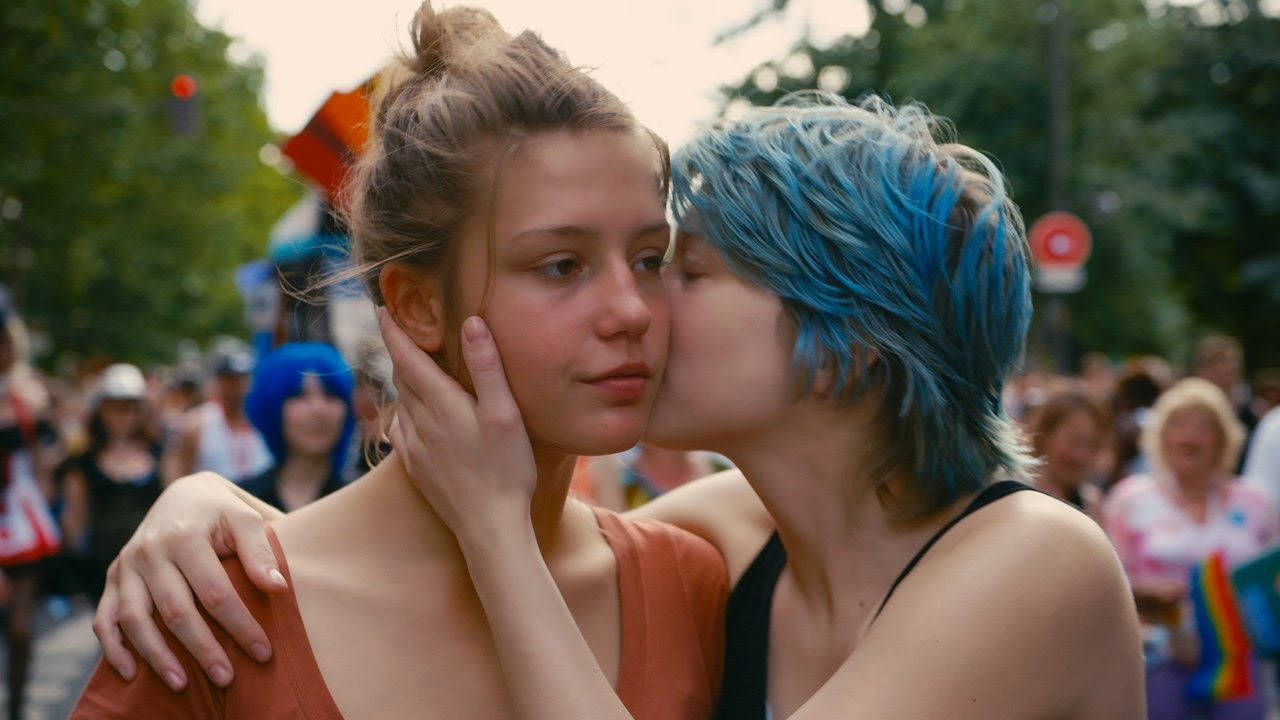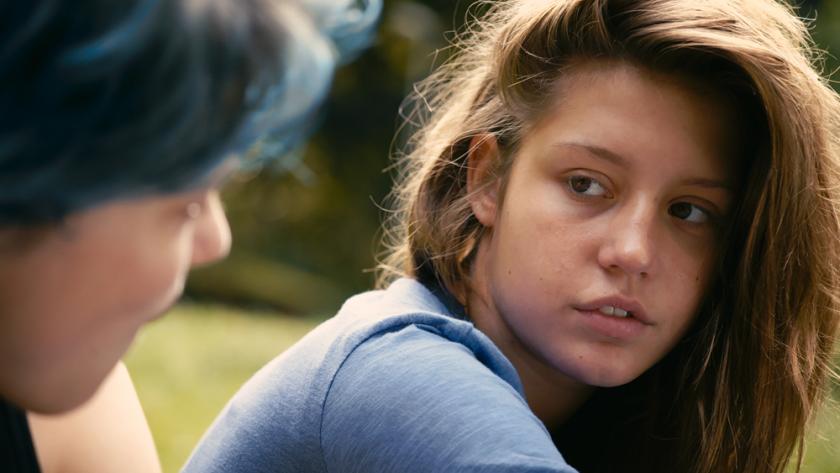“The most potent special effect in movies is the human face changing its mind.” So stated film critic David Thomson, and the principle has never been more irrefutably proven than by Blue Is the Warmest Colour and its leading lady Adèle Exarchopoulos. The electric, emotionally raw story of 15-year-old schoolgirl Adèle’s sexual awakening unfolds in a series of languid close-ups and unbroken takes, and her face is centre-stage throughout, captivating both in its moments of beauty and ugliness, continually on the brink of change.
Director Abdellatif Kechiche, whose treatment of his cast and crew has sparked the kind of controversy that unfortunately threatens to eclipse all that is good about the film, exhibits an almost clinical fascination with Exarchopoulos, who for her part gives a performance so vivid and vulnerable that at times you feel winded watching her.
Despite the inevitable attention that has been drawn by the film’s expansive sapphic love scenes, it’s generally closer to a character study than a love story; from the very first shots of Adèle leaving her parents’ house in the suburbs, boarding a bus and commuting to her school in central Lille, an almost anthropological intimacy is established in our view of her. We see her learning, walking, sleeping, eating, dancing, teaching, talking, often in snatches rather than complete A-to-B scenes, and when we do see her having sex it’s in the same matter-of-fact detail as everything else.
 The graphic novel from which Kechiche and Ghalia Lacroix’s script is titled Blue Angel, in reference to Léa Seydoux’s worldly art student Emma, who becomes Adèle’s first real love and first real loss. Prior to their meeting she has an ill-fated fling with a male fellow student, and predictable though this is as a plot element, the crushing sense of erotic disillusionment that Exarchopoulos conveys in the aftermath is painfully immediate.
The graphic novel from which Kechiche and Ghalia Lacroix’s script is titled Blue Angel, in reference to Léa Seydoux’s worldly art student Emma, who becomes Adèle’s first real love and first real loss. Prior to their meeting she has an ill-fated fling with a male fellow student, and predictable though this is as a plot element, the crushing sense of erotic disillusionment that Exarchopoulos conveys in the aftermath is painfully immediate.
It’s more telling, in fact, than most of the lovemaking she shares with Emma, which unfolds in self-consciously lengthy single takes that feel anatomical rather than illustrative; they tell us little about the couple, their relationship or the momentous passion between them. This we discover in other, less showy moments: they share the kind of conversations about art, literature and career ambitions that are too often overlooked by screenwriters, and when the emotional storm clouds start to gather, it’s clear exactly how much both have to lose.
Blue Is the Warmest Colour made Cannes history this year, becoming the first film to be awarded a shared Palme d’Or for its director and two leading actresses. While the trifecta has plainly not been a harmonious one, what they have produced is a rare thing: a passionate, wrenching and genuinely complete portrait of a human being in flux.
Overleaf: watch the trailer to Blue Is The Warmest Colour













Add comment